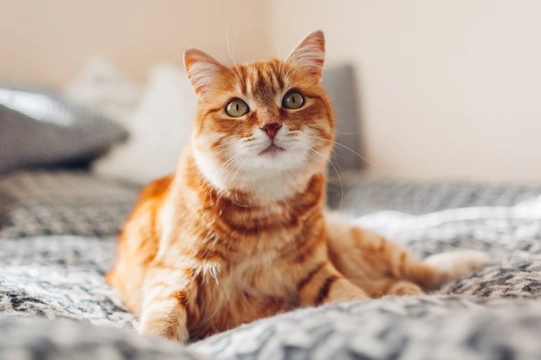
What you need to know about coronavirus in cats
Coronavirus is a word that is virtually impossible to avoid at the moment, and talk of Wuhan coronavirus heads up most news reports on the internet, TV, and in the papers too; which considering that it is competing with our very recent departure from the EU, is quite some going!
We’re talking here about Wuhan coronavirus of course, a new and novel type of coronavirus (and coronavirus comes in many different forms, it’s not just one catch-all universal disease) that has recently been identified in humans for the first time.
This is concerning in and of itself, as a new disease that affects people is never something to take lightly; but coupled with this, Wuhan coronavirus is highly infectious, and has a concerning mortality rate too, albeit nowhere near as high as some of the other infectious health scares we’ve faced in the last couple of decades, like Ebola and SARS.
Whilst Wuhan coronavirus started in China and the majority of cases so far have been there, this week has seen the very first cases of Wuhan coronavirus diagnosed in the UK. This has naturally upped the level of concern about coronavirus for many people, and meant that many people who had never even heard the word “coronavirus” until a couple of weeks ago are trying to find out more about it.
One of the first things people learning about coronavirus as a whole might have found out recently is that cats can catch coronavirus too; and this might seem like an immediate cause for concern if you own a cat, or even if you don’t!
Many cat owners have started asking questions like “can cats give you Wuhan coronavirus” or “can cats catch Wuhan coronavirus? The answer to both of these questions is a resounding no!
However, it is a good idea for cat owners (and anyone else concerned about cats, coronavirus and Wuhan coronavirus) to get the facts about feline coronavirus, and learn the very basic essentials you need to know about coronavirus in cats. Read on to learn more.
Cats can only catch, carry and transmit feline coronavirus
As mentioned, there are quite a number of different types of coronavirus; Wuhan coronavirus is just one of them. Some forms of coronavirus are zoonotic, or can be passed from one species of animal to certain other species; most are not, and only affect one species.
Cats can catch, carry and transmit one type of coronavirus, and this is called (unsurprisingly!) feline coronavirus. Feline coronavirus and Wuhan coronavirus are not the same.
Feline coronavirus can in some cases mutate in some cats into a more acute and serious condition called feline infectious peritonitis, but this and feline coronavirus alike only affects cats; and cats cannot catch, carry or transmit any other type of coronavirus.
Domestic cats cannot catch Wuhan coronavirus
So just to be clear, pet cats cannot catch any other types of coronavirus aside from feline coronavirus, and this includes Wuhan coronavirus. Cats cannot catch Wuhan coronavirus, or any other type of coronavirus; including the variant found in dogs (and dogs can’t catch or carry Wuhan coronavirus either!)
Domestic cats can’t pass any form of coronavirus onto people
Cats pose no risk to people when it comes to Wuhan coronavirus; they can’t catch it or pass it on to people. Even if they lived in close quarters with a whole family of people with Wuhan coronavirus, cats still would not transmit Wuhan coronavirus to other people!
They also cannot pass on any other form of coronavirus to people, and feline coronavirus is not contagious to people.
Most cats that catch feline coronavirus won’t even get ill from it
Your cat might have or might have previously had feline coronavirus without you even knowing about it! This is a really common infection in cats, which causes absolutely no problems or only very mild and transient symptoms in most cats that catch it.
In fact, an estimated four out of ten cats will catch feline coronavirus at some point of their lives, and most will shake it off without incident.
That said, in a very small proportion of cats, particularly the very young, old, or those with compromised immune systems might become acutely ill with feline coronavirus, which can then mutate into a serious condition called feline infectious peritonitis.
There is a vaccine available for feline coronavirus, but you have to ask your vet for it specially (and your cat probably doesn’t need it)
There is a vaccine available for feline coronavirus, but it is not one that we give as standard in the UK, as the risk to the feline population as a whole is considered to be so low. However, you can request this from your vet if you want to, and your vet will discuss the risks and potential benefits of the vaccine for your cat.
Most cats don’t need it and won’t benefit from it, but if your cat is immune-compromised and goes outside or comes into contact with other cats, your vet might advise feline coronavirus vaccination.
What are the symptoms of feline coronavirus, and how would I know if my cat had it?
If you want to learn more about feline coronavirus including its symptoms, how it is diagnosed, how it can be treated, and how the condition might affect cats, read this article to find out more.



